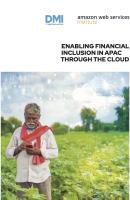Helping E-commerce Merchants in Southeast Asia Unlock Their Potential

Research Assistant, Tech for Good Institute

Constraints in time, financial resources, digital literacy, and business skills are some of the most common and significant challenges for digital merchants. Photo credit: iStock/ChayTee.
Providing equal access to affordable childcare, increasing financial and digital literacy, and targeted skilling programs are key.
This article is published in collaboration with the Tech for Good Institute.
E-commerce in Southeast Asia saw exponential growth during the COVID-19 pandemic as commercial transactions were primarily conducted online. According to the Tech for Good Institute’s Platform Economy Report, most consumers surveyed in six major markets in the region used different e-commerce platforms for purchases.
Given its flexibility and inclusiveness amid restricted mobility during the pandemic, e-commerce thrived compared with offline retail activities. However, digital merchants still have difficulty reaping the full potential of their businesses. Constraints in time, financial resources, digital literacy, and business skills are some of the most common and significant challenges.
The World Bank, in a policy brief, Unlocking the Full Potential of Digital Merchants, highlights key challenges e-commerce merchants faced based on a survey conducted during the pandemic. In Indonesia, 86% of representative businesses observed a decrease in year-on-year sales during the first year of the pandemic, but only 16% of Shopee’s merchants went through the same experience, according to the policy brief.
To tackle the challenges and promote equitable growth in e-commerce, the policy brief cited key insights and policy recommendations for governments, the private sector, investors, and consumers.
Equal access to affordable and high-quality childcare
E-commerce merchants face time constraints as they have to juggle multiple responsibilities, which, consequently, reduce their sales. Based on the report, non-e-commerce work (39%) and childcare (24%) are the top two reasons limiting merchants’ time for e-commerce work. Moreover, childcare affects female merchants disproportionately, with 35% reporting it as a time-constraining factor compared with only 10% of their male peers. This is also consistent with findings from the Philippines, where female online freelancers who are the primary caregivers at home, cited the need to take care of young children for turning to digital platform work. While e-commerce work offers better flexibility than traditional work, the lack of childcare support leads to many female merchants rejecting promising opportunities.
It is, thus, important to provide digital merchants, particularly women, equal access to affordable and high-quality childcare services. Childcare grants can also be provided to self-employed low-income merchants so that they can more spend more time growing their businesses. It is also important to implement educational campaigns on gender roles and gender equality to mitigate the unequal gender-based division of household chores, including childcare.
Increased financial and digital literacy
Lack of financial and digital literacy poses a major challenge to those who seek additional funding for their e-commerce businesses. According to the Tech for Good Institute’s Platform Economy Report, 60% of the region's micro, small, and medium-sized enterprises (MSMEs) require financing. However, they are not able to obtain loans from banks or lenders.
Digital loans are popular among merchants, with 40% of them reported to have applied for one in the past, based on the World Bank policy brief. However, 17% and 16% of the merchants cited lack of financial understanding and awareness respectively as barriers for them to secure digital loans.
To help merchants access financial support, it is crucial to implement policies and initiatives that improve financial and digital literacy. E-commerce companies and local officials can organize workshops and classes on the benefits, costs, and terms of digital loans so that merchants can make informed decisions. For example, digital platform companies like Grab and Lazada provide digital loans to assist merchants in growing their businesses. Educational campaigns targeted toward merchants on how to secure loans should also be implemented.
Improve business knowledge and digital skills
Lack of business knowledge and digital skills impede merchants’ ability to compete. Indeed, according to the policy brief, around 38% of the merchants polled request additional help with sales and marketing. Operating an e-commerce business requires a diverse set of digital skills (monitoring web pages, running advertisements) and business knowledge (setting strategic prices, managing customer relations). As many e-commerce merchants are first-time entrepreneurs, they may not be well-equipped with the necessary skills to maximize their profits.
As such, governments and digital companies should devise programs that provide merchants with low-cost training. For example, amid the pandemic, Grab launched its Small Business Booster Program which aims to help businesses adapt their operations to an increasingly digital-reliant world. Such training programs can be offered as free online courses or offline workshops that enable merchants to hone their abilities to manage digital platforms and online businesses. To teach merchants how to better engage with their customers, e-commerce player Shopee also has its own Seller Education Hub.
While e-commerce has proven to be a lifeline for many businesses during the pandemic, there are still significant challenges that digital merchants face, including time constraints, lack of financial and digital literacy, and limited business knowledge and digital skills. To address these challenges and promote equitable growth in e-commerce, there is a need for concerted efforts from governments, the private sector, investors, and consumers. Providing equal access to affordable and high-quality childcare, increasing financial and digital literacy, and targeted programs to improve business knowledge and digital skills are crucial steps toward unlocking the full potential of digital merchants.
This article was first published by the Tech for Good Institute on 2 May 2023.

Nguyen Ha Linh
Research Assistant, Tech for Good InstituteAs a research assistant at the Tech for Good Institute (TFGI), Nguyen Ha Linh helps establish partnerships between the institute and its stakeholders. She also conducts research into different technology-related topics such as cybersecurity and digital economy. At the Energy Studies Institute, she studied the decarbonization strategies of major carbon emitters, and at the Think Tank and Civil Societies Program, she analyzed the practices and policy proposals of international think tanks.

Tech for Good Institute
The Tech for Good Institute is a nonprofit organization working to leverage the promise of technology and the digital economy for inclusive, equitable, and sustainable growth in Southeast Asia. The Institute is seed funded by Grab, a leading superapp in Southeast Asia.

